Exploring countries that start with the letter ‘K’ takes us on a captivating journey through a diverse tapestry of history, culture, and intriguing facts. These nations, though united by the common initial letter, each have their own unique stories to tell. These countries are located across Africa, Asia, Europe, and Oceania. Some of the key takeaways about countries starting with K include:
Now let’s take a closer look at each of the countries starting with K.
Kazakhstan: The Crossroads of Eurasia
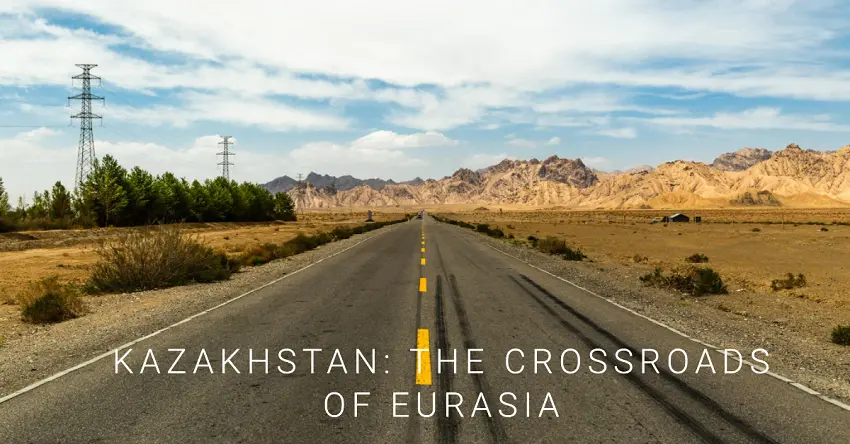
Kazakhstan, the standout among Countries that start with ‘K,’ is a vast realm of steppes and contemporary cities, serving as a geographical and cultural bridge between the East and West. Here, the echoes of ancient nomadic traditions harmoniously converge with futuristic aspirations.
Rich History
Kazakhstan’s historical canvas is vast. Once home to ancient Scythian warriors, this land witnessed the passage of mighty conquerors like Genghis Khan and Timur. Later, it became a crucial part of the Silk Road, facilitating the exchange of goods and cultures. Russian and subsequently Soviet influences have further shaped its political and cultural milieu. Gaining independence in 1991, Kazakhstan has been steadily carving out its identity on the global stage.
Culture
Kazakh culture is a beautiful blend of its nomadic past and Turkic roots. The traditional yurt, a symbol of nomadic life, still holds cultural significance. Music, dance, and oral literature, including epics like “Kozy Korpesh-Bayan Sulu”, play a pivotal role in preserving and showcasing the nation’s rich traditions.
Interesting Facts
- Astana, now Nursultan, the capital, boasts futuristic architecture, including the iconic Bayterek Tower.
- The nation is home to the Baikonur Cosmodrome, the world’s first and largest space launch facility.
- The Charyn Canyon, often referred to as the Grand Canyon’s little brother, is a natural wonder.
Kenya: Africa’s Vibrant Heartbeat
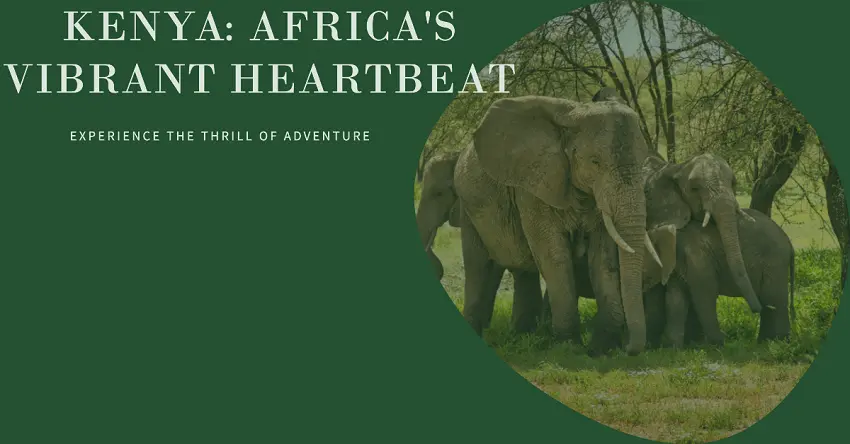
Kenya, a prominent entry in the list of Countries that start with K. Kenya is a vibrant tapestry of stunning landscapes and cultural diversity. From its snow-capped peaks to wildlife-rich savannahs, Kenya is a captivating blend of nature’s grandeur and cultural richness.
Rich History
Humanity’s earliest traces are found in Kenya’s Rift Valley, making it the cradle of humankind. Over the millennia, the region has been home to diverse communities, each leaving its indelible mark. The coastal Swahili civilization, with its intricate blend of African, Arab, and Persian influences, stands testament to Kenya’s rich historical tapestry.
Culture
Kenya is a mosaic of over 40 ethnic groups, each with its unique traditions, languages, and dances. While the Maasai and Samburu are renowned for their colorful attire and pastoral lifestyle, the Swahili coast offers insights into an age-old trading culture.
Interesting Facts
- The Great Migration, a wildlife spectacle, sees over a million wildebeest and zebras move between the Serengeti and Maasai Mara.
- Kenya gave the world the concept of the safari, with the term itself meaning ‘journey’ in Swahili.
- The country lies on the equator, yet Mount Kenya, Africa’s second-highest peak, is snow-capped.
Kuwait: The Pearl of the Arabian Gulf
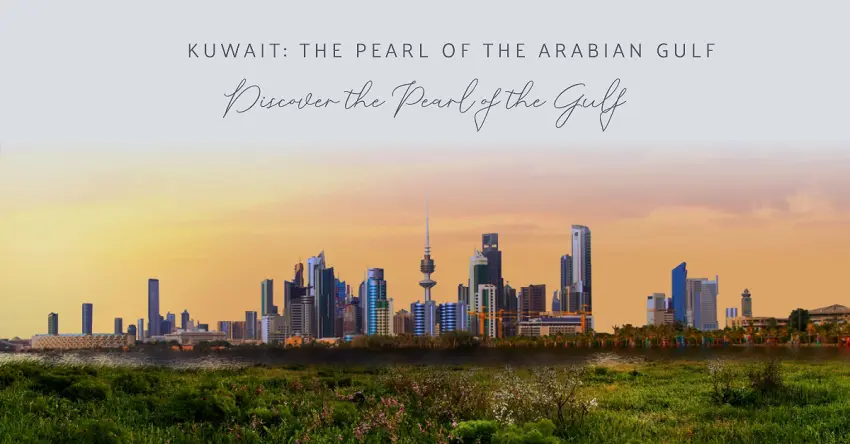
Kuwait, a small emirate nestled at the Persian Gulf’s edge, is a harmonious blend of ancient traditions and modern urban life.
Rich History: Kuwait’s history is deeply interwoven with the sea. Initially, a humble fishing village, its strategic position transformed it into an essential trading port. Its modern history has been significantly shaped by the discovery of oil and the events of the Gulf War.
Culture: Kuwaiti culture mirrors its Bedouin roots and maritime traditions. The diwaniyas, traditional evening gatherings, epitomize the nation’s social fabric. Poetry, music, and dance form the cultural soul, with events like the Hala February Festival celebrating its heritage.
Interesting Facts:
- Kuwait had the Middle East’s first elected parliament in the 1960s.
- It boasts one of the world’s tallest telecommunications towers, the Liberation Tower.
- The nation has a rich maritime history, with dhow-building being a cherished craft.
Kyrgyzstan: Land of the Tien Shan Mountains
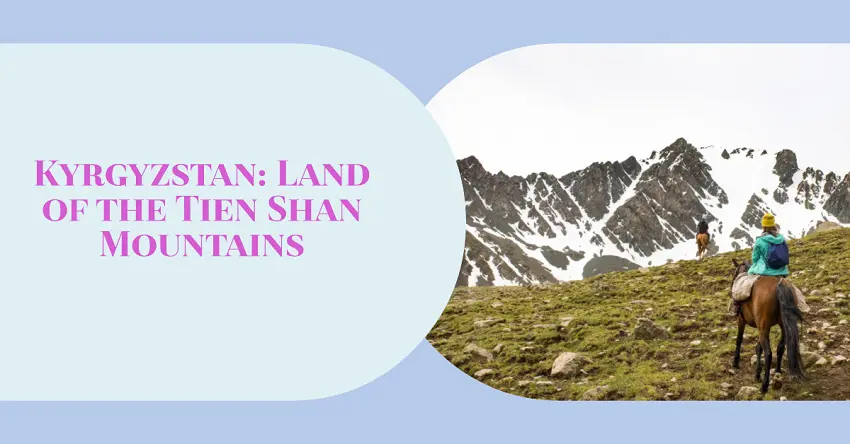
Nestled amidst the majestic Tien Shan Mountains, Kyrgyzstan is a realm of untouched landscapes and rich nomadic traditions.
Rich History
The history of Kyrgyzstan is a compelling narrative of nomadic tribes, Silk Road merchants, and great empires. From the early Scythian inhabitants to the Mongol conquests and subsequent rule by the Qing Dynasty and Tsarist Russia, Kyrgyzstan has always been a significant crossroads of cultures and influences.
Culture
A land where horses are revered, and the yurt is a symbol of life, Kyrgyzstan’s culture is a testament to its nomadic soul. The Epic of Manas, one of the world’s longest epic poems, encapsulates the nation’s spirit, history, and values.
Interesting Facts:
- Lake Issyk-Kul, a saline lake in Kyrgyzstan, is the second-largest mountain lake globally after Titicaca.
- The traditional game “Kok-Boru”, played with a goat carcass, is a popular and culturally significant sport.
- The World Nomad Games, hosted by Kyrgyzstan, seeks to revive and celebrate nomadic culture.
Kiribati: A Dance of Atolls in the Pacific

Spread across the central Pacific, Kiribati is a nation of coral atolls, turquoise waters, and a unique cultural tapestry.
Rich History: Kiribati’s history is intertwined with the vast Pacific Ocean. Early Micronesian settlers navigated these waters, establishing communities on these atolls. European contact, especially with the British, brought changes, culminating in Kiribati becoming a British protectorate. The nation achieved independence in 1979.
Culture: The essence of Kiribati lies in its communal values, dance, and music. The “Bouto” dance, performed during special occasions, captures the island’s spirit. Fishing and seafaring are integral to the I-Kiribati way of life.
Interesting Facts:
- Kiribati is the only country in the world to span all four hemispheres.
- Due to climate change and rising sea levels, Kiribati faces the threat of becoming uninhabitable.
- The nation purchased land in Fiji as an adaptation strategy to potential displacement.
Kosovo: Europe’s Young Heart

Kosovo, in the ‘Countries that start with K,’ is Europe’s symbol of resilience with rolling hills and a rich history.
Rich History
Kosovo’s past is layered with influences from the Illyrians, Byzantines, Ottomans, and more recently, the Yugoslav era. The late 20th century was marked by conflicts and aspirations for independence, which was declared in 2008.
Culture
Kosovar culture is a vibrant blend of its Albanian, Serbian, and Ottoman heritages. Traditional music, dances, and festivals are celebrated with zeal. The architecture, especially monasteries like Visoki Dečani, showcases its rich past.
Interesting Facts
- Kosovo boasts one of Europe’s youngest populations.
- The nation has several UNESCO World Heritage sites, including the medieval Gračanica Monastery.
- Despite being landlocked, the Rugova Canyon offers adventure sports like zip-lining.
South Korea: A Phoenix Rising in the East

South Korea, an affluent Asian nation in the ‘Countries that start with K,’ seamlessly merges ancient palaces with cutting-edge tech hubs. It’s a captivating fusion of past and future.
Rich History
The Korean peninsula has witnessed the rise and fall of dynasties, from the Three Kingdoms to the Goryeo and Joseon periods. Japanese colonization and the subsequent Korean War have deeply impacted its modern history, leading to the bifurcation of the peninsula.
Culture
South Korean culture, or “Hallyu”, is a global phenomenon. While K-pop and dramas capture global audiences, traditional elements like Hanbok (traditional dress), Kimchi, and festivals like Chuseok remain at the nation’s heart.
Interesting Facts
- South Korea’s Jeju Island has its own “Haenyeo” or female free divers, an age-old profession.
- The Korean Demilitarized Zone (DMZ) is one of the world’s most heavily fortified borders.
- Hangul, the Korean script, was designed for simplicity, enabling high literacy rates.
North Korea: The Enigmatic Kingdom
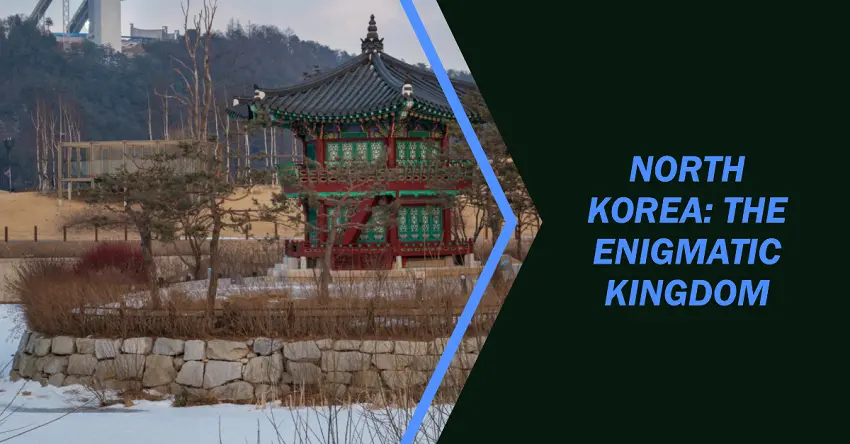
Shrouded in mystery, North Korea is a land of contrasts, where ancient traditions coexist with a unique political landscape.
Rich History
Sharing its foundational history with South Korea, the post-WWII era saw North Korea adopt a distinct path under the Kim dynasty. Its self-reliance doctrine, military-first policy, and isolation from much of the world have shaped its contemporary narrative.
Culture
North Korean culture is deeply influenced by its state philosophy of Juche, or self-reliance. Mass games, parades, and state-controlled art and literature are prominent. However, traditional practices, including the celebration of lunar festivals, persist.
Interesting Facts
- Pyongyang, the capital, boasts grand monuments like the Arch of Triumph and Juche Tower.
- North Korea uses a unique calendar based on the birth of its founder, Kim Il-sung.
- Arirang, a traditional folk song, holds deep emotional resonance for the Korean people.






